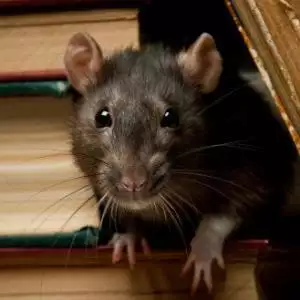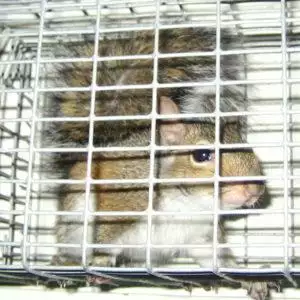Our Rodent Removal Services
Call Now – (804) 457-2883

Range
Rodents are one of the most common household pests worldwide, with an average range spreading across all continents, including North America.
Habitat
Rodents’ habitats vary widely, depending on the subspecies. Most rodents, however, are known for their adaptability, which has made it easy for them to live alongside humans. Nowadays, many rats and mice have adapted to life in urban areas, where food is readily available, as is warmth and shelter. To some, this may even be preferable to living in the wild.
Diet
At their core, most rodents are believed to be herbivores, feeding largely on seeds, leaves, roots, flowers, etc. However, most rodents, particularly those adapted to urban living, are opportunistic feeders. This means that they will eat largely anything, as long as it’s readily available.
This is why many rodents will feed on insects, worms, fish, and human food.
Reproduction and Behavior
Rodents are believed to have a heightened sense of social intelligence. Most rodents are familial by nature and will be viciously protective of their young. They are also community-oriented, rather than solo flyers.
For example, brown rats tend to group themselves into small colonies, with multiple females sharing the same burrow, and typically with one or two male rats to defend it.
Upon birth, rodents fall into two subcategories: precocial (fairly well-developed, with fur) and altricial (largely underdeveloped, and hairless). Regardless, the rodent mother will usually care for her young until they become fully independent.
Damage
Rodents can cause all sorts of damage to your property, though not out of sheer aggressiveness. Rodents may damage furniture and structures through their incessant chewing (due to their ever-growing incisors).
They may also wreak havoc as they struggle to build a nest on your property, tearing and destroying things inside your home. Lastly, rodents may also cause significant damage through defecation. Not only do their feces and urine stain and destroy fabrics and furniture, but they also carry a large number of diseases. This puts you, your family, and your pets in serious danger.
Damage Prevention and Control Methods
Trapping

While live trapping is largely similar to a traditional trap, the rodent is merely caught inside the trap without being killed. This allows you or the removal professional to transport the rodent to a safe, secluded area, where it won’t bother anyone.
Poison
While it might sound tempting to use poison, remember that it carries many drawbacks. A poisoned rodent will take hours and even days to die, and may die anywhere on your property, even in difficult to reach areas. This may attract other predators, causing an even bigger problem.
Also, exposed rodent poison can endanger small children or pets.
Prevention
Once the rodent is off the property, you will need to identify its entry point and seal it using materials that are difficult to chew through, such as copper mesh. You will also need to clean your property thoroughly and maintain cleanliness, to deter new intruders from approaching.
If you are dealing with a rodent problem, call us at (804) 457-2883 for help! We’ve found another great resource on rodent removal of rats.